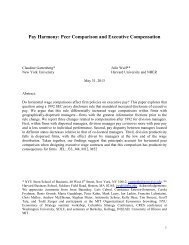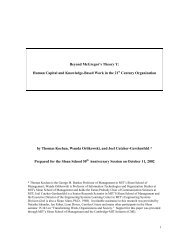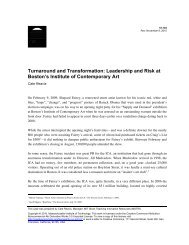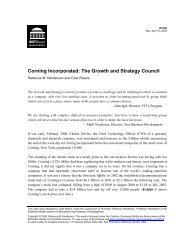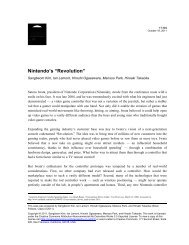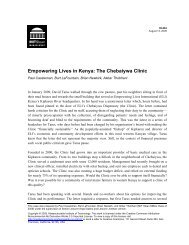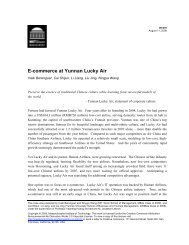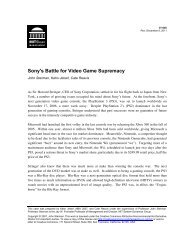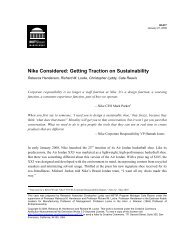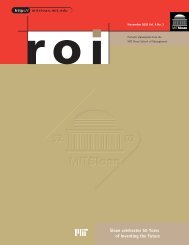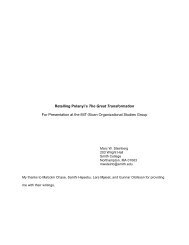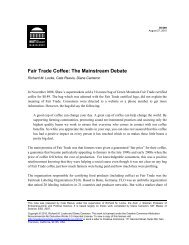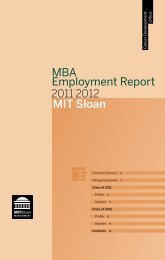Understanding earnings quality - MIT Sloan School of Management
Understanding earnings quality - MIT Sloan School of Management
Understanding earnings quality - MIT Sloan School of Management
Create successful ePaper yourself
Turn your PDF publications into a flip-book with our unique Google optimized e-Paper software.
anks use the valuation allowance against deferred tax assets to create hidden reserves that they can<br />
later use to smooth <strong>earnings</strong>.<br />
An additional five papers study the impact <strong>of</strong> capital requirements relative to other<br />
incentives: 1) Moyer (1990) finds that bank’s use adjustments to the loan loss provision, loan<br />
charge-<strong>of</strong>fs, and securities gains and losses to avoid violating capital adequacy requirements but she<br />
finds no support for the political sensitivity hypothesis (i.e., attempt to reduce income when revenue<br />
is high); 2) Beatty, Chamberlain and Magliolo (1995) use a simultaneous system <strong>of</strong> five equations to<br />
examine whether bank managers optimize over a variety <strong>of</strong> incentives including capital<br />
requirements, tax, and <strong>earnings</strong> goals, and they investigate multiple accruals accounts; 3) Mensah,<br />
Considine, and Oakes (1994) suggest that financially weak HMOs understate “incurred but not<br />
reported expenses” (IBNRs), consistent with incentives to avoid violation <strong>of</strong> net worth requirements,<br />
but they find no support for the hypothesis that political visibility (measured by size) increases the<br />
regulatory pressure; 4) Chen and Daley (1996), for a sample <strong>of</strong> Canadian banks from 1977 to 1987,<br />
find strong support for capital maintenance incentives, weaker support for tax incentives, and no<br />
support for equity valuation incentives; and 5) Gaver and Paterson (1999) find that changes in<br />
insurers’ choices on the realization <strong>of</strong> capital gains and stock transactions reflect changing<br />
incentives in risk-based capital requirements in 1994, while loss reserve estimates do not. Rather,<br />
loss reserve decisions are consistent with tax incentives throughout the period <strong>of</strong> changing capital<br />
regulation.<br />
In a related vein, Muller (1999) finds that the decision by British firms to capitalize a brand<br />
rather than to write it <strong>of</strong>f immediately at the time <strong>of</strong> an acquisition is influenced by whether the<br />
choice would result in shareholder approval for future acquisitions under London Stock Exchange<br />
requirements, which are capital-based.<br />
115



